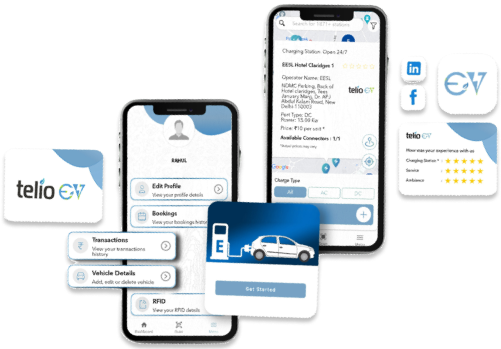Readers Views Point on EV Cms Software and Why it is Trending on Social Media
Readers Views Point on EV Cms Software and Why it is Trending on Social Media
Blog Article
Enhancing Electric Vehicle Charging with Advanced Management Software

The rapid adoption of electric vehicles (EVs) has actually demanded the advancement of efficient and user-friendly charging solutions. Central to this evolution are Electric Vehicle Charging Management Software (EV CMS) and EV Charging Apps, which streamline the charging process for both operators and users.
Understanding EV Charging Management Software
EV Charging Management Software functions as an extensive platform that allows Charge Point Operators (CPOs) and other stakeholders to monitor, manage, and optimize EV charging stations. Key functionalities include real-time monitoring of charging stations, user authentication, payment processing, and energy management. By integrating these features, the software makes sure effective operation and boosts the user experience.
Key Features of EV Charging Management Software
1. Real-Time Monitoring and Control: Operators can supervise the status of charging stations, track energy usage, and address problems quickly.
2. User Authentication and Access Control: The software manages user access, making sure that just authorized individuals can use the charging facilities.
3. Payment Processing: It facilitates seamless deals, supporting different payment techniques to cater to varied user choices.
4. Energy Management: By optimizing energy distribution, the software reduces operational expenses and supports grid stability.
5. Reporting and Electric Vehicle Charging App Analytics: Comprehensive data analysis aids in notified decision-making and tactical planning for network growth.
The Role of EV Charging Apps
EV Charging Apps are created to offer EV owners with convenient access to charging facilities. These applications offer functions such as finding nearby charging stations, real-time schedule updates, navigation support, and remote monitoring of charging sessions. By boosting ease of access and user engagement, these apps play an essential function in promoting the adoption of electric vehicles.
Combination with Open Charge Point Interface (OCPI)
The Open Charge Point Interface (OCPI) is a standardized protocol that assists in interoperability between various EV charging networks. Combination with OCPI allows for seamless roaming, enabling users to gain access to numerous charging networks with a single account. This interoperability improves user benefit and broadens the accessibility of charging facilities.
Benefits of Implementing Advanced Charging Solutions
- Enhanced User Experience: User-friendly user interfaces and trustworthy services increase customer fulfillment and loyalty.
- Operational Efficiency: Automation and real-time tracking decrease manual intervention, decreasing operational expenses.
- Scalability: Advanced software solutions support the expansion of charging networks to fulfill growing demand.
- Revenue Generation: Flexible rates models and efficient payment processing open new profits streams for operators.
Conclusion
The integration of EV Charging Management Software and user-centric EV Charging Apps is critical in advancing the electric vehicle community. These innovations not only enhance operations for service providers but likewise substantially improve the charging experience for users. As the EV market continues to grow, the adoption of such innovative solutions will be instrumental in satisfying the increasing need for efficient and accessible charging facilities. Report this page